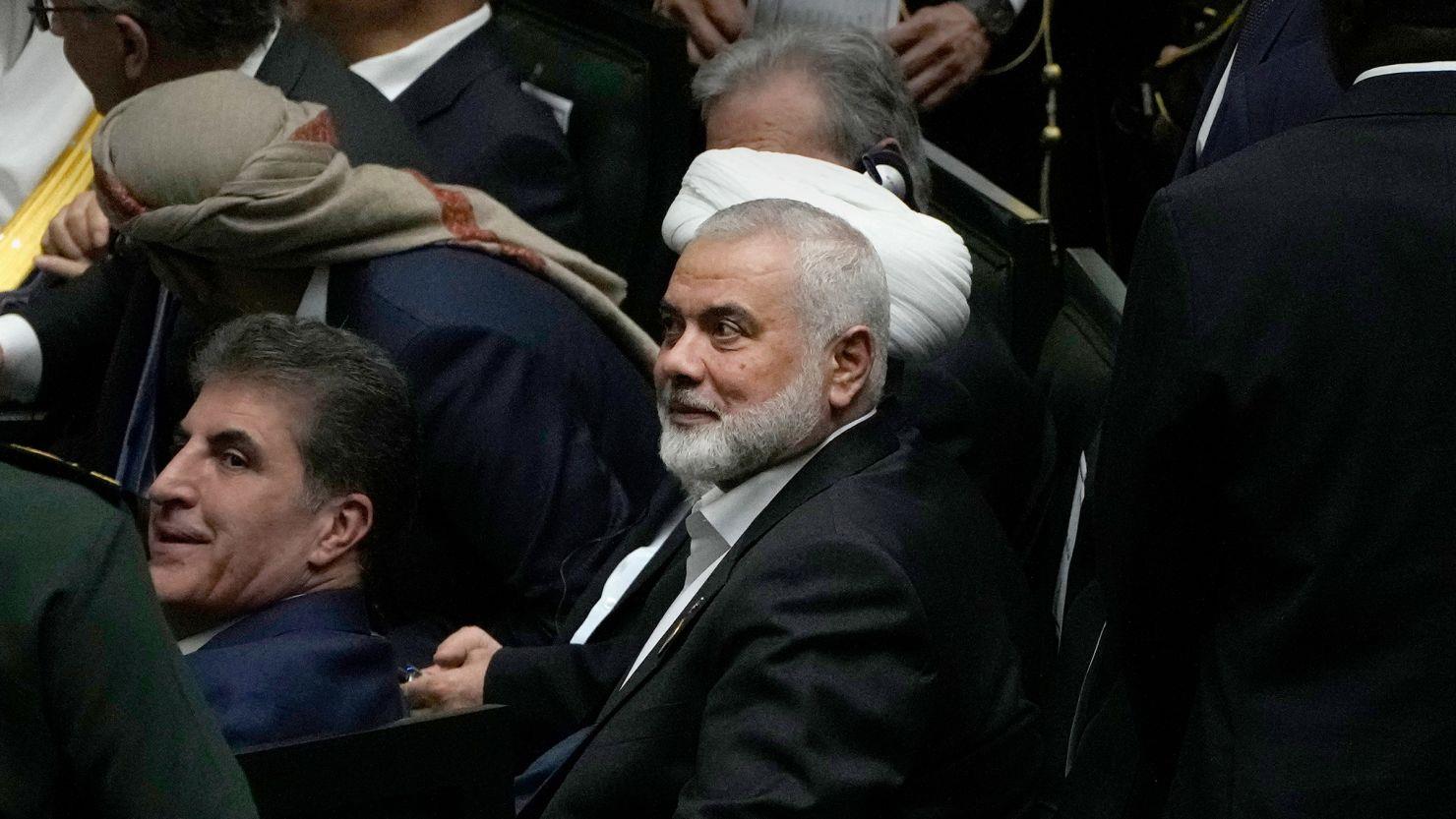
Hamas Political Leader Ismail Haniyeh Assassinated In Tehran
Haniyeh was killed in what Hamas described as a“treacherous Zionist strike” after attending the inauguration of Iran's new president, Masoud Pezeshkian. The Islamic Revolutionary Guard Corps (IRGC) confirmed the strike hours after Haniyeh participated in Pezeshkian's swearing-in ceremony. The IRGC announced it was investigating the incident and reported that one of Haniyeh's bodyguards was also killed. Israeli authorities have not commented on the Tehran strike.
Pezeshkian, inaugurated as Iran's ninth president on Tuesday during a ceremony attended by foreign dignitaries, including Haniyeh, vowed to“defend Iran's territorial integrity, dignity, honour, and pride.” He promised that the“terrorist occupiers” would regret their actions. Iran's Supreme Leader Ayatollah Ali Khamenei also issued a statement promising“harsh punishment” for Israel in response to Haniyeh's assassination.
Israel had previously vowed to target Haniyeh and other Hamas leaders following the group's October 7 attack. Haniyeh, usually based in Qatar, was a prominent figure in the Palestinian resistance group's international diplomacy. The ongoing conflict in Gaza has seen the deaths of three of his sons in an Israeli airstrike. Haniyeh is the most senior Hamas official to be killed since the conflict began.
Haniyeh was elected head of the Hamas political bureau in 2017, succeeding Khaled Mashaal. He became a well-known figure after becoming Palestinian prime minister in 2006 following Hamas's victory in that year's parliamentary election. Haniyeh joined Hamas in 1987 during the first Palestinian intifada against Israeli occupation, which lasted until 1993. During the ongoing Gaza conflict, Haniyeh travelled on diplomatic missions to Iran and Turkey, meeting with both countries' presidents and maintaining good relations with leaders of various Palestinian factions, including those rival to Hamas.
In a statement posted on Telegram, Hezbollah extended its condolences to the family of the Hamas leader following his assassination. This incident marks the second high-profile assassination attributed to Israel within hours. The first involved an airstrike in Beirut, which allegedly killed Hezbollah's top military leader, Fuad Shukr. While Hezbollah has not confirmed Shukr's death, the strike resulted in the deaths of at least one woman and two children, and injured dozens more. Hezbollah mentioned that their commander Shukr, also known as Hajj Mohsen, was present in the building during the attack, but his current status remains unknown.
The airstrike occurred amid increasing hostilities with the Lebanese group, which has been carrying out near-daily attacks across the border in support of Gaza. Israel stated that the strike on Shukr was in retaliation for an alleged rocket attack that killed 12 people at a football field on the occupied Syrian Golan Heights earlier this week. Additionally, the US holds Shukr responsible for planning and executing the deadly 1983 Marine bombing in Beirut.
The assassination of Haniyeh in Tehran has significant implications for Iran and its security apparatus:
Iran's Security Apparatus Impact: The event underscores a vulnerability in Iran's security, as a high-profile figure was targeted and killed within its capital. This could lead to increased scrutiny and possible overhaul of security measures in Tehran.
Iran's Response: Given the strategic alliance between Iran and Hamas, Iran is likely to feel compelled to respond. This response could take various forms, including bolstering security, retaliation against perceived enemies, or increased support for allied groups.
Leadership Dynamics in Hamas: With Haniyeh's death, there is a vacuum in the leadership of Hamas. Yehya Al-Sinwar and Zaher Jabarin are still in place but in hiding, while Khaled Meshaal could step in as a public leader. The internal dynamics and succession plan within Hamas will be crucial in the coming period.
Regional Tensions: The assassination may escalate tensions in the region, particularly between Iran and Israel. Iran may increase its support for proxy groups and engage in indirect confrontations.
Strategic Calculations: Iran's top security body convening to decide on a strategy suggests that this assassination is not just a blow to Hamas but also a strategic challenge for Iran. Their response will likely be measured to balance between retaliation and maintaining regional stability.

Legal Disclaimer:
MENAFN provides the
information “as is” without warranty of any kind. We do not accept
any responsibility or liability for the accuracy, content, images,
videos, licenses, completeness, legality, or reliability of the information
contained in this article. If you have any complaints or copyright
issues related to this article, kindly contact the provider above.


















Comments
No comment